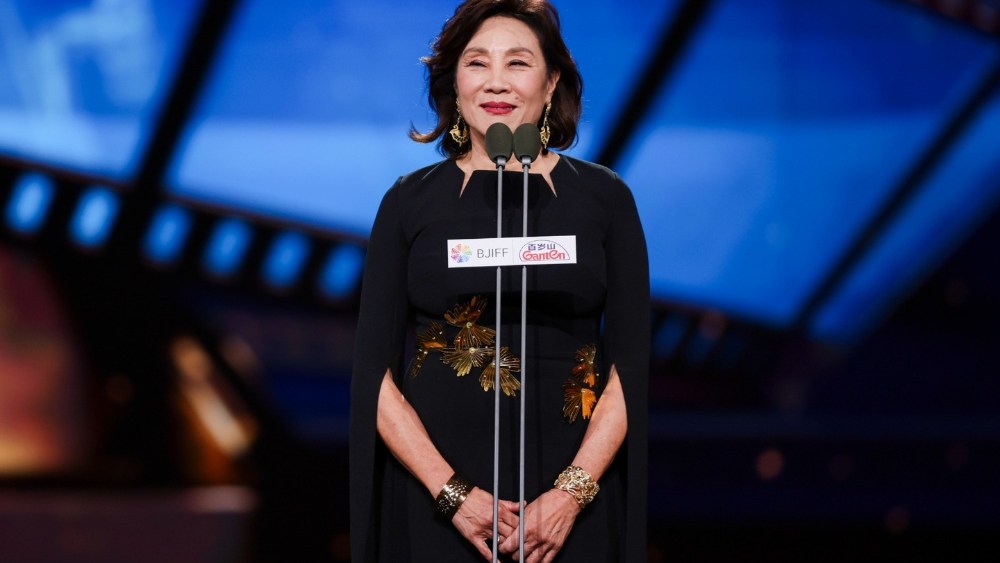Janet Yang Emphasizes Cultural Exchange at the Beijing International Film Festival
The President of the Academy of Motion Picture Arts and Sciences, Janet Yang, delivered a keynote address at the Beijing International Film Festival, underlining the significance of cultural exchange between the United States and China—two of the world’s largest film markets. As an American-born Chinese film producer with extensive experience in both industries, Yang shared her insights drawn from decades of bridging these cultural realms.
Film as a Unifying Force
In her speech, Yang expressed her firm belief in the power of film to unite diverse audiences. “My personal and professional experiences tell me that film has a unique power to bring people together,” she stated, underscoring her optimism for ongoing cultural exchanges not only between the U.S. and China but globally.
Reflections on a Groundbreaking Career
Yang, whose tenure as Academy president is drawing to a close, reflected on her pioneering role in introducing Chinese cinema to Western audiences. She cited her involvement in major Hollywood productions within China, such as Steven Spielberg’s “Empire of the Sun” and Bernardo Bertolucci’s “The Last Emperor,” as significant milestones in her career.
Addressing Representation and Milestones
During her address, Yang highlighted the ongoing underrepresentation of talent from Greater China within the Academy’s ranks, which comprises nearly 11,000 members. This underrepresentation comes despite a growing global appreciation for cinema, as evidenced by the 2020 Academy Award win for South Korea’s “Parasite,” which marked a historic moment as the first non-English language film to win Best Picture.
Yang noted key milestones in Chinese cinema, including the success of Xu Zheng’s “Lost in Thailand,” a 2012 film that grossed over $200 million, signaling a breakthrough that propelled China’s local box office past the $1 billion mark for the first time.
Asian Diaspora Stories Gaining Recognition
Yang acknowledged the recent successes of Asian diaspora narratives in cinemas, citing “Everything Everywhere All at Once,” which won seven Oscars including Best Picture, along with other nominees like “Past Lives” and “Minari.” She also mentioned the acclaim for recent Chinese films, specifically referencing Guan Hu’s “Black Dog,” which won the Un Certain Regard award at Cannes.
“These films prove that audiences don’t need to fully understand a culture to be moved by it,” Yang noted. “Authenticity and specificity invite connection.”
Opportunities for Chinese Filmmakers
Yang discussed the exciting prospects for Chinese filmmakers to reach global audiences through international collaborations. “For Chinese filmmakers, this is an amazing opportunity to go global,” she emphasized, advocating for nuanced storytelling that enhances both representation and cultural impact.
Strategic Industry Insights
Although Yang did not address the China Film Administration’s recent restrictions on American films during her keynote, she acknowledged that as filmmaking evolves, cross-border collaboration is vital for Chinese filmmakers to thrive. “Innovation and collaboration with international artists can amplify Chinese storytelling,” she stated, identifying this dynamic as both a pathway to cultural innovation and an economic advantage.
Looking to the Future
Yang concluded her remarks by addressing challenges such as post-pandemic box office recovery and the increasing influence of artificial intelligence in filmmaking. However, she expressed optimism for the future of Chinese cultural representation, pointing to projects like “Black Myth: Wukong” and the adaptation of “The Three-Body Problem” as indicators of a rising Chinese voice in global cinema.
“These are all signals of something larger. China’s cultural voice is rising, and it’s claiming its rightful place on the world stage,” she added. Yang even suggested that a Chinese-language film may soon win the Best Picture Oscar, ending with an enthusiastic, “I for one, will be cheering.”


